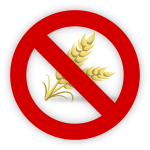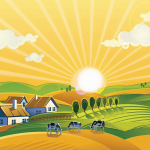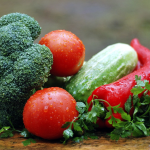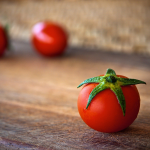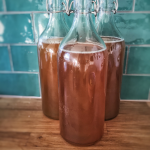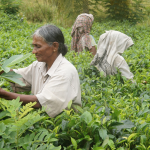It seems that everyone is on a special free-from diet these days. The list of unpopular ingredients to avoid includes dairy, fat, sugar, genetically-modified anything, nuts, and gluten. And for some reason, there seems to be a huge crowd of individuals who must now be gluten-free. What’s this all about?
Food & Nutrition
The evidence consistently shows that organic farming cannot help the world slow climate change. Yet science publications that should know better continue to promote this harmful myth.
In our affluent nation, most dogs are no longer working animals who help hunt, guard property, protect children or herd livestock. They’ve been taken from the farms and kennels, welcomed into our homes, and treated as cherished family members. Therefore, it’s not surprising that the food trends for the “pet parents” have spilled over to canine cuisines. Feeding raw diets to dogs is a growing alternative to commercially processed dry, semi-moist or canned pet foods. Here’s what we are seeing as a result.
A lot has been written about the strengths and weaknesses of using DNA testing to customize individual diets. It's a promising idea, but our knowledge of genetics isn't yet good enough to pinpoint what each of us should eat.
The FDA recently released the latest results from its Pesticide Residue Monitoring Report. Spoiler alert: America's food supply still isn't tainted with harmful synthetic chemicals.
Some scientists say we need tighter gene-editing regulations to mitigate the serious risks associated with the technology. There are some critical flaws in their argument.
These local markets are the revival tents of fresh food seekers, part of the “buy-local-eat-healthy” movement, offering personal interactions between growers and consumers. But this dirt-to-dinner arrangement presents food safety issues and handling challenges for growers, small food businesses, and consumers.
The anti-GMO movement is gradually campaigning itself into irrelevance. Unfortunately, this positive trend has been slowed by public universities that pay activists exorbitant speaking fees to promote their questionable ideas. This is but one example of taxpayers subsidizing ideological advocacy with potentially serious consequences.
Japanese consumers now have access to a genetically engineered -- specifically, a CRISPR-edited -- tomato that can help prevent high blood pressure. Hopefully, it's one of many gene-edited products we'll begin to see in grocery stores around the world.
Whether the source is carbohydrates, protein, or fat, a calorie is a calorie. New dietary math based on the microbiome says that a calorie may get eaten– not by us – but by our bacterial companions, altering the balance needed to reduce one’s weight.
Kombucha is a popular high-acid, low-alcoholic beverage composed of fermented tea and sugar. Kombucha lovers tout its use as a remedy for everything, calling it a miracle elixir. It has grown from a regional beverage to a global market. Are its health claims factual, or is it just another trendy “bubbly” beverage?
Earlier this year, Sri Lanka banned imports of synthetic pesticides and fertilizers, part of its effort to embrace organic-only farming. The project has left farmers without access to vital tools and sent food prices soaring.
